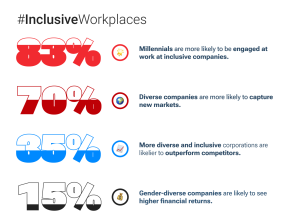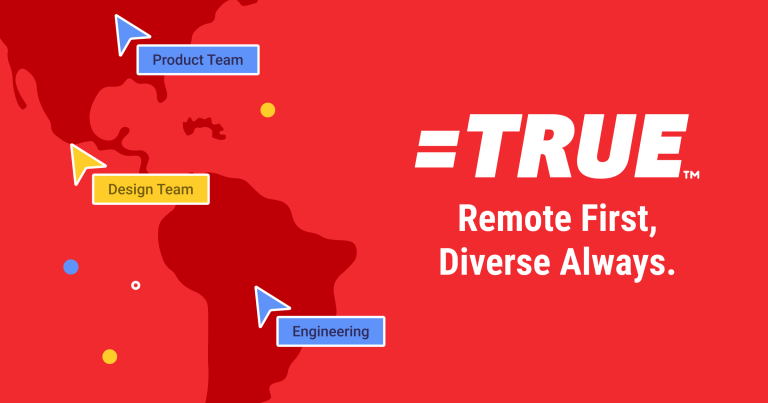When it comes to showing your brand’s own set of values, what matters more? Being palatable to a wide range of audiences or connecting with customers who get you? This past year several companies scaled back and laid off entire DEIB teams based on negative views towards diversity, equity, and inclusion. It seems that what drove them to hire these teams changed once the tide did. So were the sentiments shared via press releases and executive statements real or just hot air?
Look, nobody’s judging a shift in perspective. But rather than succumbing to peer pressure, business and HR leaders need to know what part of their DEIB initiatives are close to their core values and which are just PR.
Is Your DEIB Performative?
In the court of public opinion via TikTok it’s hard to always be aligned and in the right camp when it comes to social justice. After all, we’re only human. We have biases, both conscious and unconscious. We might be prejudiced or predisposed to think or act a certain way towards a particular community or group. But when it comes to company policy regarding workplace diversity, there needs to be accountability. That’s where DEIB teams come in. They offer perspective and nuance towards conversations that might be happening in silos.
Sometimes we get caught up in the excitement or outrage of a particular social movement or event. We want to do everything right now and cause an impact asap. This is when our actions can become mere performance. We’re so invested in showing others that we care, that we don’t strategize or think closely about budgets. We simply react. Then a year or two down the line, we realize our business was unable to sustain this new team or initiative.
It’s not that we didn’t care about the situation, it’s that we were not prepared to incorporate and scale it in the best way possible. Perhaps you didn’t need an entire DEIB team, just one experienced person in your People team focused on strategizing and making the initiatives a reality. Maybe you couldn’t get your entire company enrolled in a workshop or course on biases, but you could’ve gotten consultancy services for recruiters or C-suite for starters. A little can go a long way and even be more sustainable. Maybe a year after you can afford for the whole team to get DEIB training.
Get Inspired to Think Outside the Box
While we’re at it, there are a couple of things you can start implementing today to work towards a more diverse team. Here are a couple of tips that can help you and your team get past the performative side of DEIB:
- Try blind hiring practices: Sometimes the best way to avoid bias is to remove any aspect that can switch our internal alarms off. Ask someone on the team who isn’t part of recruitment to make candidates’ resumes anonymous. They’ll ensure that the hiring crew only sees the person’s experience, degree, skills, etc but without their name or identifiable information on display.
- Review role descriptions: Ask other team members what they would understand or perceive from a particular description posted online. Would it scare off someone whose background is more hands-on rather than academic? Could a candidate assume that they would not be able to apply because of their current role? Think about how wording changes everything and might be bringing you the wrong candidates and scaring off good ones.
- Have an interview script: It doesn’t sound as exciting as having a spontaneous call with candidates, but having a template for the types of questions you need answers to avoids getting into playing favorites or asking really hard questions to someone you wouldn’t think is “up to the job”. The easiest way to avoid tangents or moving a candidate up in the process because they’re more likable is for everyone to play by the same guidelines. Who answered the question regarding teamwork best? Who had a good idea for problem solving? The more standardized your interview process is, the better candidates you’ll see.

Asking Hard Questions
There’s another part of DEIB that also can be make or break for implementing company policy and initiatives. Are you digging deep into your own biases? One thing is what we say and another is what we do. The space between these needs to grow shorter with time. Don’t look outwards or to the rest of your team. Lead with the example. Be unafraid to show how you’re also looking to change your beliefs for the better.
Many of our biases regarding who is capable of doing the job come from old beliefs that might not be relevant or helpful. However, if we don’t look inside of ourselves we’ll never know they’re there. Have an accountability buddy on your team so you can check whether you’re acting from biased concepts or if you’re being fair.
Think of it as Business Initiative
Don’t think of DEIB as a chore that’s only intended to calm public perception. Being truly focused on diversity, rather than just performative, has its benefits. Aside from ensuring you get the best talent for your team, your business also has more opportunity to grow. According to Mckinsey, companies that focus on being more inclusive were “35% more likely to outperform competitors”.
So focus on what really matters. Having the most talented people working to get your customers the ultimate product or service. It might come with a bit of self-introspection but it will get you and your business towards where you want to be.
Copyright © 2024 EQUALS TRUE. All Rights Reserved.





